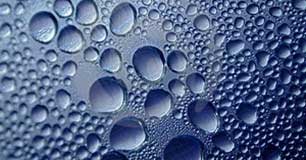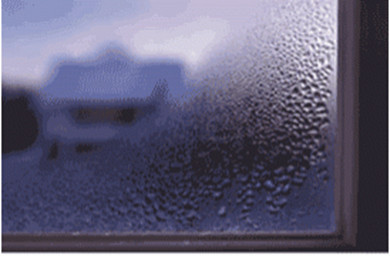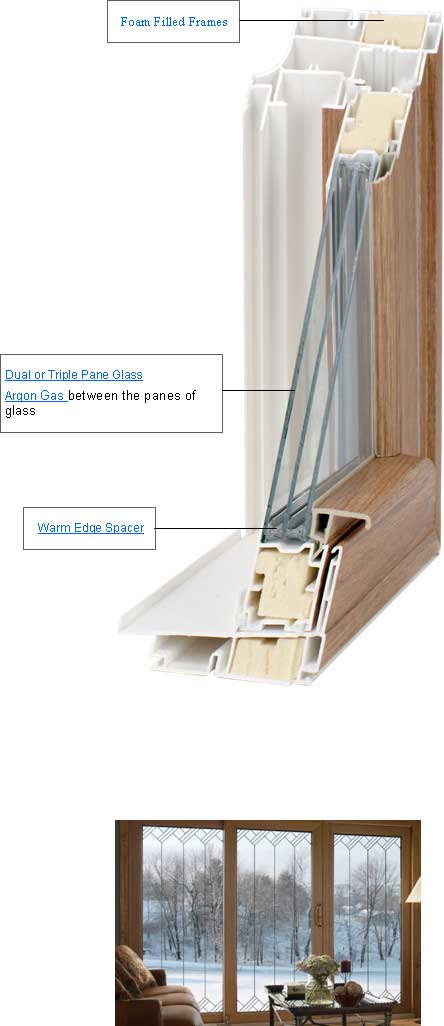Condensation Resistance
Humidity is water in the air - water vapor. When the weatherman talks about relative humidity, its relative to the temperature. The warmer the temperature, the more water air can hold. You never hear any one say its cold and humid. But you know what hot and humid feels like. Condensation occurs when warm humid air meets cold air, the water in the air turns into liquid because the cold air can’t hold that much water vapor. A windows Condensation Resistance is its ability to keep the air directly next to the window a warm as possible.
CondensationThe change of water from water vapor to liquid.
Our Window's DefenseInsulated Argon Filled Glass almost eliminates the connection between the inside of your home and outside at the glass and reduces heat moving through the glass - keeping inside window temperatures elevated. Warm Edge Spacer around glass lessens the connection point at the edge of the glass by it’s u shaped design as opposed to a square shaped design - reducing warm air movement to the outside. Foam Filled Frames insulates the connection point between the inside and outside of your home at the frame - added insulation keeps warm air in your home.
Condensation Resistance NumbersThe Condensation Resistance number measures how well a window resists water liquid build-up. It is scored on a scale from 0 to 100. The higher the condensation resistance number, the less build-up the window allows. With the National Fenestration Rating Council’s (NFRC) approval, we do not publish Condensation Resistance numbers. They can be very misleading and cause what we feel are poor purchasing decisions. Newer Low-E coatings placed on the interior surface of your window can greatly reduce Winter Heat Loss. It reflects radiant heat back into the house so well that it does not allow the interior glass to warm which adversely effects Condensation Resistance numbers. However, the Winter Heat Loss benefits far out way the minor loss in Condensation Resistance. |
|
Your Windows and Doors Will Never Condensate!
That is true when it comes to the inside of your insulated glass unit but unfortunately there is no such thing when it comes to the outside of your insulated glass unit. Better windows, like ours, will have more resistance to condensation but no window or door will have a 100% guarantee to be free of condensation. If your window should ever condensate on the inside of an insulated glass unit (also called a seal failure) new glass will be yours free of charge.

 317-353-3000
317-353-3000






